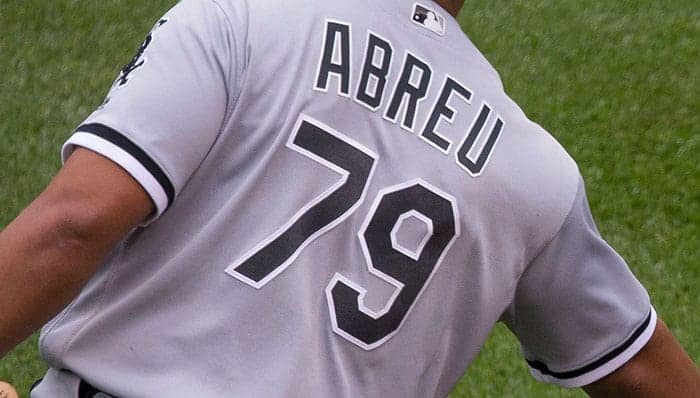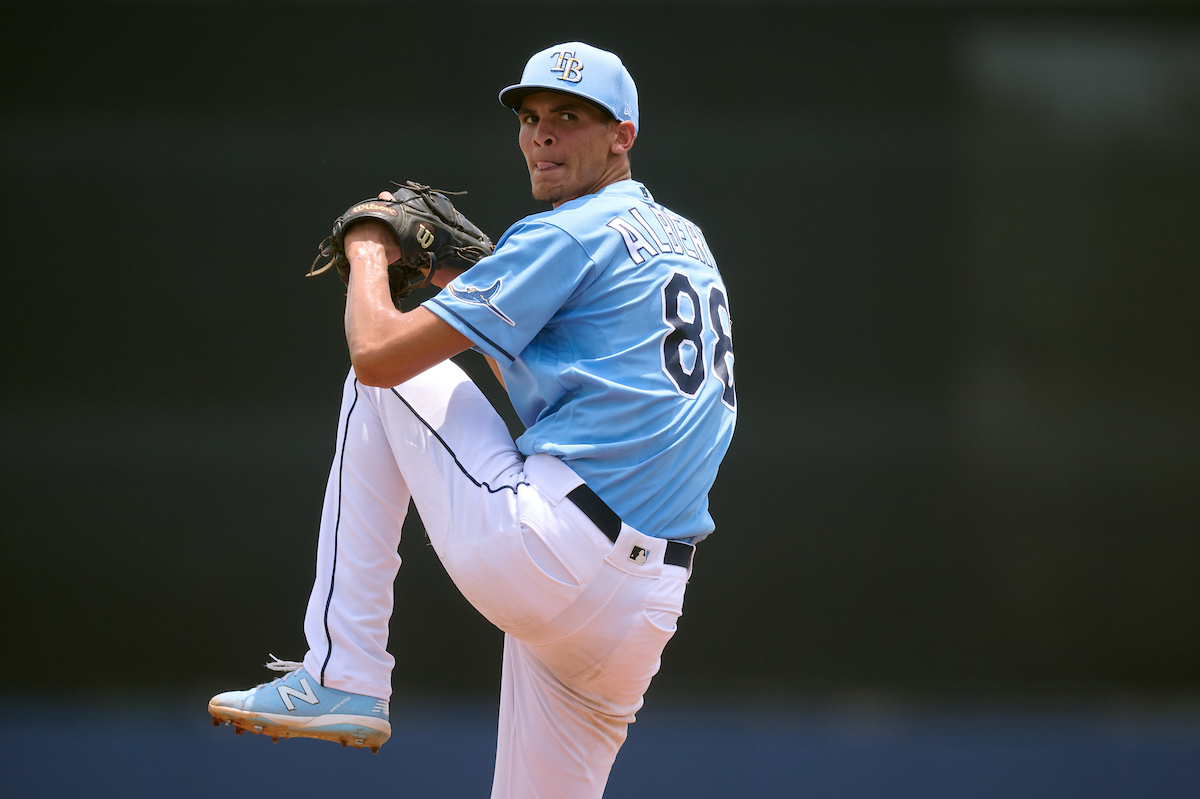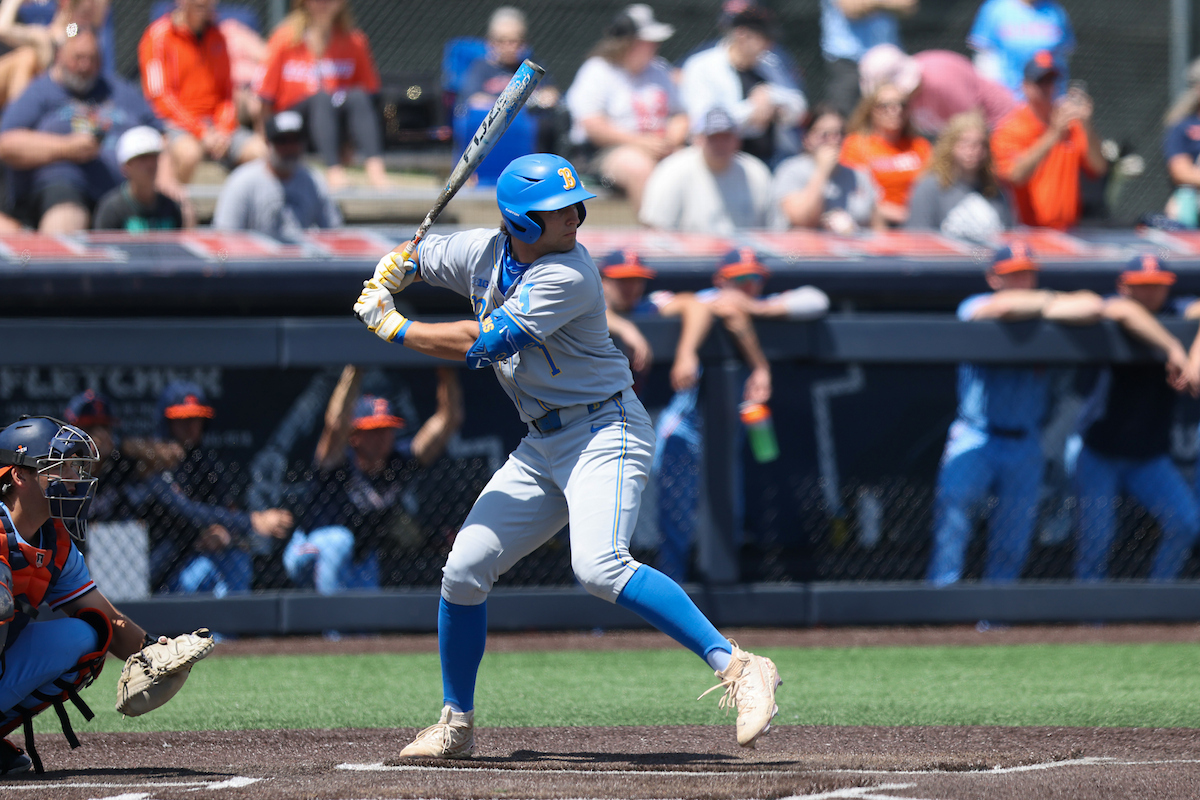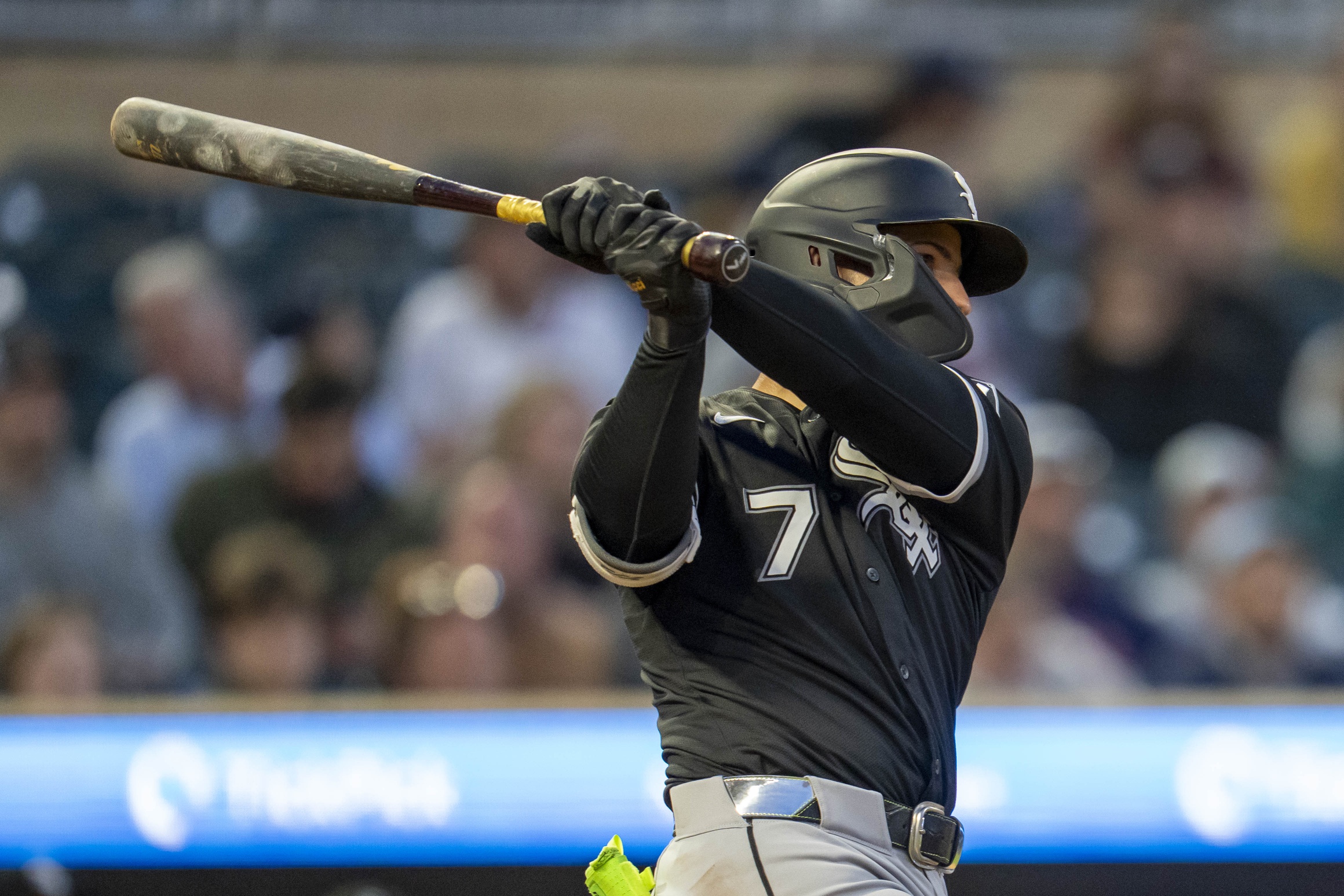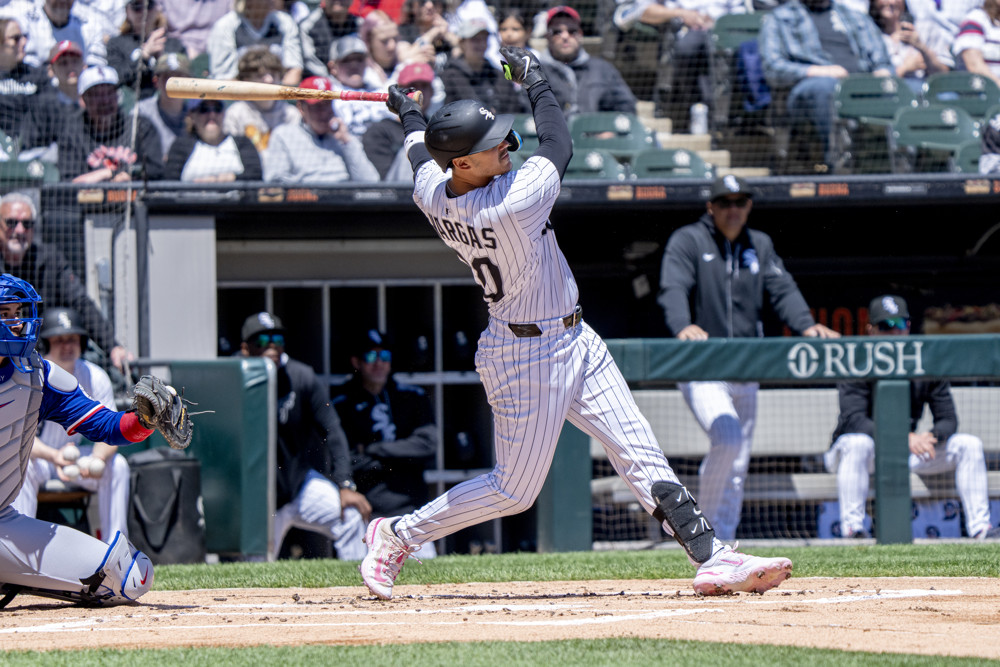I've been treating it as a foregone conclusion that Jose Abreu will be with the White Sox beyond 2019. Obviously, things can happen between now and September that change minds, but the White Sox rarely speak about their plans regarding a specific player this definitively, and Abreu has been all too vocal about wanting to remain here. Barring the unforeseeable, we should all probably get used to the idea of Jose Abreu being here next season.
Reasons this could be a good thing
Jose Abreu's importance as a leader in the clubhouse has been discussed very often since his arrival in Chicago. With all the young players who have already arrived and will arrive in the coming years, having a guy like Abreu around could have value that none of us can really measure. In particular, Luis Robert is looking increasingly like one of the rebuild's most important pieces. In Abreu's own rookie season, the White Sox valued the presence of fellow Cuban players Alexei Ramirez and Dayan Viciedo as he was being broken into the league, and it's reasonable to assume that they'll want to try to build a similar sense of comfort in the clubhouse with Robert. This, more than any other reason, is probably why the White Sox already seem to be writing Abreu into their 2020 plans.
Furthermore, Abreu is a talented run producer. As of this writing, he's right in the mix for the AL RBI lead, despite the fact that the guys hitting in front of him have generally not been standard-setters for OBP at the top of a lineup. He's hitting .324/.341/.554 with runners in scoring position this season, and his ability to take his numbers up a notch in RBI situations has been a facet of his entire career.
- Abreu, career: .291/.348/.515
- Abreu, career with RISP: .319/.397/.547
Granted, the league as a whole hits better with runners in scoring position than without*, but Abreu's batting average and slugging numbers have received a little more than the typical bump**. Some (typically, myself included) do not believe in clutch performance as a sustainable, predictive skill, but there's 887 plate appearances with ducks on the pond included in the above, so there's at least a modest case to be made here. In any event, there's no question that Abreu has been a strong performer in run-producing situations for the White Sox. This means he's been a little more valuable than what the aggregate, context-neutral statistics (e.g., WAR) suggest.
Another argument for keeping Abreu is the lack of short-term depth. With Yonder Alonso now out of the picture, the White Sox have the DH slot open and can accommodate both Abreu's bat and that of Zack Collins. If the White Sox were to hypothetically part ways with Abreu, there's no one obvious in the organization that could step in and provide an OPS over .800. They'd have to go shopping for that, and as Josh pointed out in the comments the other day, the list of free agents isn't exactly awe-inspiring (though a trade is always possible).
As a final point, this is Abreu's sixth season in a White Sox uniform, and he's yet to play for a winning team. He's been very easy to root for, and there's a substantial contingent of White Sox fans that understandably want him to be here if and when this rebuild bears fruit. Winning would be more fun if Abreu's there to experience it, because he's paid his dues more than any anyone else in the clubhouse.
*In 2019, non-pitchers have hit .265/.351/.450 with runners in scoring position, versus .254/.326/.438 in the aggregate. The underlying reasons for this are obvious; pitchers who prefer to pitch from the wind-up sometimes can't with runners in scoring position, and there's a selection effect at work in that bad pitchers have runners in scoring position against them more often than good pitchers.
**The considerably larger gap in OBP is probably due to pitch-arounds and intentional walks, in large part due to the White Sox' inability to roster a cromulent cleanup hitter for most of his tenure.
Reasons this might not be a good thing
The aforementioned aggregate, context-neutral statistics are getting increasingly ugly. Over his last 683 plate appearances, Jose Abreu has been close to replacement level (0.3 fWAR). Baseball Reference's WAR looks upon Jose slightly more favorably, so it's arguable that he's been a little better than that, but the entire package is below average for a first baseman, regardless of your catch-all metric of choice.
From watching Abreu, I can understand why that is hard for some to believe. His home run and RBI totals are near the top of the league. Hitting homers and driving in runs are some of the most obvious and fan-gratifying manifestations of a player's skill, so it makes sense that there's a perception that Abreu's much more valuable than an all-encompassing statistic like WAR suggests.
However, Abreu struggles in areas that aren't quite as obvious when watching a game. In addition to a batting average that has fallen, Abreu doesn't walk much and hasn't seen the regular diet of beanballs this season that usually prop up his OBP, which sits close to .300. His poor range makes him a sub-par defender at first base. As he's gotten older, he's also become one of the league's worst base runners. The slugging is great, but without some secondary skills to prop up his value, there's an awful lot of weaknesses for the run-producing abilities to cancel out, let alone exceed.
Compounding these concerns is Father Time. Abreu is going to turn 33 next January, and while the fact that his game isn't built on athleticism might make this less concerning than it would be for a guy who provides value with his wheels, it's an age where we're more likely to see a production decrease than an increase. Present-day Abreu is already a below-average player. Absent a resurgence to his past self (which he's certainly provided before, and without warning), the prospect of starting him in a competing season is less than comforting. He's at the point where he needs to be balanced out by a better player elsewhere on the roster.
The White Sox will have to grant Abreu a new contract, and the terms of that deal are still an open question. On the plus side, the market hasn't valued 1B/DH types very highly in recent years, and his eroded skills might depress the contract he'll require. Plus, it's already known that the White Sox value Abreu's intangible contributions more than any other team would, so it's unlikely that there will be a bidding war that makes the White Sox extend themselves.
Still, the shape of his eventual contract could matter, because the White Sox are an organization that hard-capped themselves with Melky Cabrera and Adam LaRoche's modest deals the last time that they tried to compete. Those guys got paid in the $12-$14 million range per season. Abreu's salary will probably fall short of that, but it's worth remembering that given the way the White Sox operate, every dollar budgeted for Abreu can't be budgeted for a player who's more likely to be a plus contributor.
***
Until the past year or so, the White Sox have enjoyed the simultaneous benefit of Abreu's leadership and average-to-great first base production. The working assumption has always been that his leadership is very important, but that's a lot easier to say when leadership is the cherry on top of All-Star-level value. With the production fading and the stakes of each passing season increasing, using Jose Abreu as a lineup fixture in 2020 will put that assumption to the test.
That said, I'm of the mind that keeping Abreu is probably the right call. First and foremost, he figures to be good for Robert, and Robert is important enough that the White Sox should help him out however they can. Hopefully, Jose can come up with enough clutch hits and stem the tide of his decline such that his effect on the rest of the clubhouse can make his presence a net positive. However, if the White Sox plan to compete in 2020, Abreu's fading skill means that when filling out the roster, it would behoove the White Sox to aggressively compensate for a below-average first baseman rather than assuming they've got a star at the position. If there's any concern with keeping Abreu, it's that "aggressive compensation" is not this organization's strong suit.
